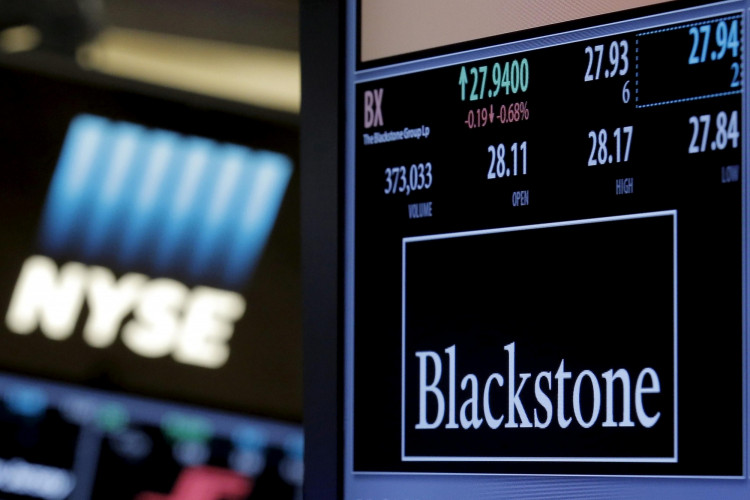Before the start of U.S. stock trading on July 20, Blackstone Group, the world's largest asset management group, announced its Q2 performance.
According to the report, Blackstone's assets under management (AUM) reached $1 trillion at the end of Q2, roughly in line with market expectations of $1.01 trillion and up from $940.8 billion in the same quarter last year. This milestone makes Blackstone the world's first private equity firm to manage $1 trillion in assets. As of the end of Q2, Blackstone's private equity assets stood at $295.29 billion, slightly above the market estimate of $292.51 billion.
However, due to sluggish primary market transactions, Blackstone's total Q2 revenue was $2.35 billion, lower than the market prediction of $2.41 billion. Funds inflow for Q2 was at $30.12 billion, significantly below the market forecast of $39.05 billion. Earnings per share for Q2 were 93 cents, slightly above the market prediction of 92 cents.
Due to a substantial decline in asset sales from real estate and credit businesses, distributable earnings - a measure of the profit available to shareholders - dropped by 39% year-on-year to $1.2 billion, marking a two-year low.
Specifically, due to rising interest rates, inflation, and ongoing economic uncertainty impacting its M&A activity, Blackstone's Q2 net profit from asset sales plummeted 82% from $2.2 billion in the same period last year to $388.4 million. The decline in net profit from asset sales was primarily dragged down by a decrease in net profits from the real estate and credit sectors, with Q2 net profits in these two departments falling 94% and 46% year-on-year, respectively.
Despite the decline in distributable earnings, other measures of Blackstone Group's profitability improved in Q2. Fee-related earnings (regular profits from asset management) grew 12% year-on-year to $1.14 billion. This growth was driven by fees from new funds and bolstered by the rising stock market.
Due to the re-sale of shares in the London Stock Exchange Group and Gates Industrial Corporation held by Blackstone, fee income from its private equity business still grew by 20%.
Moreover, Blackstone's alternative asset management business performed excellently, despite the industry-wide downturn.
Blackstone noted that its private equity funds rose by 3.5% in Q2, trailing the S&P 500's 8.3% gain. Specifically, its private credit funds rose by 3.3%, hedge fund assets rose by 1.9%, while its real estate funds were flat.
Blackstone also announced a quarterly dividend of 79 cents per share.
After the report was released, Blackstone's stock opened lower on Thursday, initially falling by 2% but steadily recovering, even turning positive midday. By the afternoon, the decline had narrowed to around 0.5%.
As of Wednesday this week, Blackstone's stock price has surged by 46% this year, outperforming not only the S&P 500 but also other asset management firms.
Large asset management firms like Blackstone now face various risks in a higher interest rate environment: it's the world's largest owner of commercial real estate, a major allocator of hedge funds, and has its own banking operations.
Blackstone Group President Jon Gray stated that due to the company's size, it's now garnering more attention. This large scale allows the firm to carry out large-scale transactions and gives the company a broader understanding of the economy.
When discussing the US macro-economy, Gray predicted that the pain of inflation has peaked and the market slump of the past year could end soon. He believes the scope of the inflation decrease may be broader than what the market expects. With the Federal Reserve working to cool down the economy, the market is starting to realize that inflation is under control.
Gray believes that the market has already absorbed the "shock" of interest rate hikes. Given the substantial decline in U.S. inflation in recent months, trading activity might soon recover. The market and trading activity will return to normal. With the economic slowdown, the market might fall into a slump again, but Blackstone has already weathered the inflation shock and largely withstood the impact of interest rate hikes.
Compared to 12 months ago, Gray feels more confident about today's market conditions.




